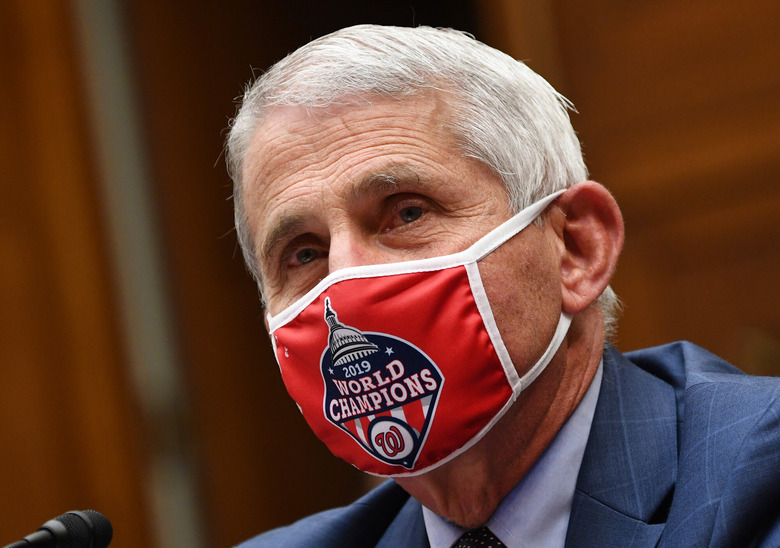Dr. Fauci Says Early Coronavirus Vaccines Won't Stop COVID-19 Infections - But That's Okay
- Dr. Anthony Fauci explained that the main goal for coronavirus vaccines isn't to block COVID-19 infections, but instead to stop severe cases and life-threatening complications.
- By stopping symptoms, the vaccine would prevent severe illnesses and save lives.
- Preventing COVID-19 infections entirely is a secondary goal for early vaccine candidates, Fauci said.
About half a dozen novel coronavirus vaccine candidates are in the final stage of trials, and a few of them will have conclusions ready in the coming weeks. Hopefully, more than one of these experimental drugs will turn out to be safe and effective against COVID-19 so that emergency vaccination campaigns can begin. But there's no guarantee that any of the Phase 3 trials will be successful, and we have plenty of examples of drugs that have failed in COVID-19 experiments so far.
The first COVID-19 vaccines won't be 100% effective either, which means people who are vaccinated will still have to take precautions to avoid contracting the illness for as long as possible. Health experts have made it clear that face masks and social distancing measures will stay in place for at least another year while vaccination campaigns get underway.
Dr. Anthony Fauci explained in an interview that the actual goal of the early COVID-19 vaccines isn't even to block infections, a detail that people should be aware of even before considering whether to get a vaccine or which vaccine to go for. Instead, scientists are aiming to prevent severe COVID-19 cases or stop symptoms altogether. The virus would still gain entry into the human body, but vaccines will stop it from replicating and prevent symptoms, including life-threatening complications.
"The primary thing you want to do is that if people get infected, prevent them from getting sick, and if you prevent them from getting sick, you will ultimately prevent them from getting seriously ill," Fauci said during an interview at Yahoo Finance's All Markets Summit on Monday. "What I would settle for, and all of my colleagues would settle for, is the primary endpoint to prevent clinically recognizable disease."
Blocking infection altogether is the secondary endpoint of these clinical trials. What Fauci and others want to see is the prevention of symptoms that can lead to death.
We've touched on this in the past when looking at earlier results from some trials. For example, Oxford researchers found in their tests on monkeys that the vaccine prevented the virus from infecting the lungs of the test subjects, but the virus was present in samples taken from nasal swabs. That means the infection was localized to the nasal cavity. The virus could not replicate in the lungs, so the test subjects did not experience symptoms consistent with COVID-19.
In a similar preclinical trial involving hamsters, Johnson & Johnson showed that its single-dose vaccine could prevent severe illness in the vaccinated animals. If there's not enough virus to cause symptoms, it can't lead to life-threatening complications. That's the strategy for the first phase of coronavirus vaccines.
As it stands right now, the virus usually infects cells inside the nose and starts replicating. The virus then spreads to the lungs and other organs while taking over more and more cells. The more cells are infected, the likelier it is that the patient will experience some symptoms. The immune response to the virus and the ensuing fight starts when the pathogen enters the body. Most people clear the infection within two weeks after the onset of symptoms, but the immune system starts killing the coronavirus even before that. Ultimately, it's the immune system that wins in most cases — but with more than 226,000 deaths in the US and more than 1.16 million people dead worldwide, we know that's not always the case.
Should these vaccines effectively prevent symptoms, then patients might still be infected and they would still test positive. But the vaccines would then prevent symptoms, and recovery should be much swifter. Public health officials will be tasked with explaining exactly how COVID-19 vaccines will work once the first drugs receive regulatory approval.
